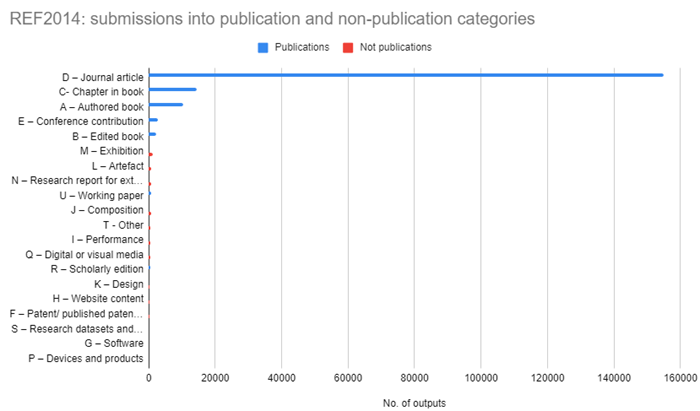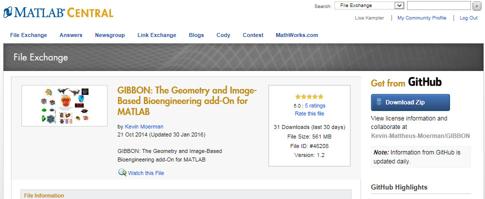On the Importance of Software to Research
This week's post is by Mike Croucher. Mike is a member of the Customer Success Engineering team in the UK, working with academics around the country on their teaching and computational research. Mike has been a supporter of the Research Software Engineering movement since its inception and co-founded one of the first RSE groups in the UK. You can find Mike on Twitter (Mike Croucher (@walkingrandomly) / Twitter) and LinkedIn (Mike Croucher | LinkedIn)
On the Importance of Software to Research
by Mike Croucher
Anyone who has worked around academia for a long time will tell you that there are many roles in academic research that are vital-but-unrecognised. Software development used to be one of them! Back in 2012, a group of people decided to change this situation and created what has since become the Research Software Engineering (RSE) movement. As I can personally attest, this movement has been a game changer for those of us who contribute most through research software rather than journal writing. Our place in the academic world now has a name, a career structure, fellowship opportunities, an international association and more.
RSEs used to be relatively invisible in academia, a situation that wasn’t helped by the fact that there used to be 200 different job titles for what we now call Research Software Engineer. Much of the early work of the research software engineering pioneers was data collection. Conducting surveys, parsing through thousands of job adverts looking for mention of software development, reading through large numbers of papers looking for discussion of supporting software and so on.
Step by step, the data revealed a story that could not be denied -- software is important to research and so are those who write it.
The need for data collection continues
We are far from finished. While the importance of research software is better recognised than ever, it still lags far behind the almighty ‘paper’ in the pantheon of research outputs. Furthermore, can we repeat the RSE success story for other contributors such as technicians, librarians and research managers. Are there other vital-but-unrecognised roles that should be brought into the light and given better support and recognition?
The Research Excellence Framework (REF) is the official system for assessing the quality of research in UK Higher Education Institutions. Academics across the country are asked to submit their best research outputs out of 20 different categories and this leads to ranking the research quality of all institutions in the UK. These categories include the obvious such as ‘Journal articles’ and ‘Book Chapters’ but also things as diverse as ‘Devices and products’, ‘Compositions’ and, my personal favourite as a Research Software Engineer, ‘Software’.
In practice, however, journal articles reign supreme. In the previous REF around 97% of all submissions were based on publications (data here). Software submissions were so low that you can’t even see them on a chart! The net effect of this is that you are officially only considered a good contributor to research if you’ve published a lot of good papers. Everything else is just noise.

What’s needed is more data about all of the outputs that are not publications and this is where the UK’s Hidden REF comes in. Brought to you by some of the same team behind the Research Software Engineering campaign, the Hidden REF aims to bring these hidden contributions to the surface. The Hidden REF has many categories including training materials and courses, enabling access to facilities and, of course software. Possibly the most exciting, however, is the Hidden Role, a placeholder for ‘Stuff we didn’t even realise was important and we need your help in finding it’. Only one type of research output is forbidden -- publications!
Since this is a MATLAB blog, I encourage anyone in the UK who has made a contribution to the File Exchange to write up how their software has positively impacted research and submit to the Hidden REF. Once you’ve done that, forward this article to your technicians, librarians, facility managers and anyone else who you think should have their story told. We all know some unsung hero without whom our research would be impossible -- participating in the Hidden REF will allow them, and those like them, to be recognised which is the first step to being better supported.
To enter Hidden REF (Note: you need to be affiliated with a UK based institution), head over to https://hidden-ref.org/submission-and-review-process/ and write a simple summary of the output of no more than 300 words in length. The deadline for submission is 14th May 2021.
Researchers outside of the UK are not eligible to enter but if you’d like to tell your story anyway, I’d love to hear it so feel free to post a comment here.
 Cleve’s Corner: Cleve Moler on Mathematics and Computing
Cleve’s Corner: Cleve Moler on Mathematics and Computing The MATLAB Blog
The MATLAB Blog Guy on Simulink
Guy on Simulink MATLAB Community
MATLAB Community Artificial Intelligence
Artificial Intelligence Developer Zone
Developer Zone Stuart’s MATLAB Videos
Stuart’s MATLAB Videos Behind the Headlines
Behind the Headlines File Exchange Pick of the Week
File Exchange Pick of the Week Hans on IoT
Hans on IoT Student Lounge
Student Lounge MATLAB ユーザーコミュニティー
MATLAB ユーザーコミュニティー Startups, Accelerators, & Entrepreneurs
Startups, Accelerators, & Entrepreneurs Autonomous Systems
Autonomous Systems Quantitative Finance
Quantitative Finance MATLAB Graphics and App Building
MATLAB Graphics and App Building








Comments
To leave a comment, please click here to sign in to your MathWorks Account or create a new one.